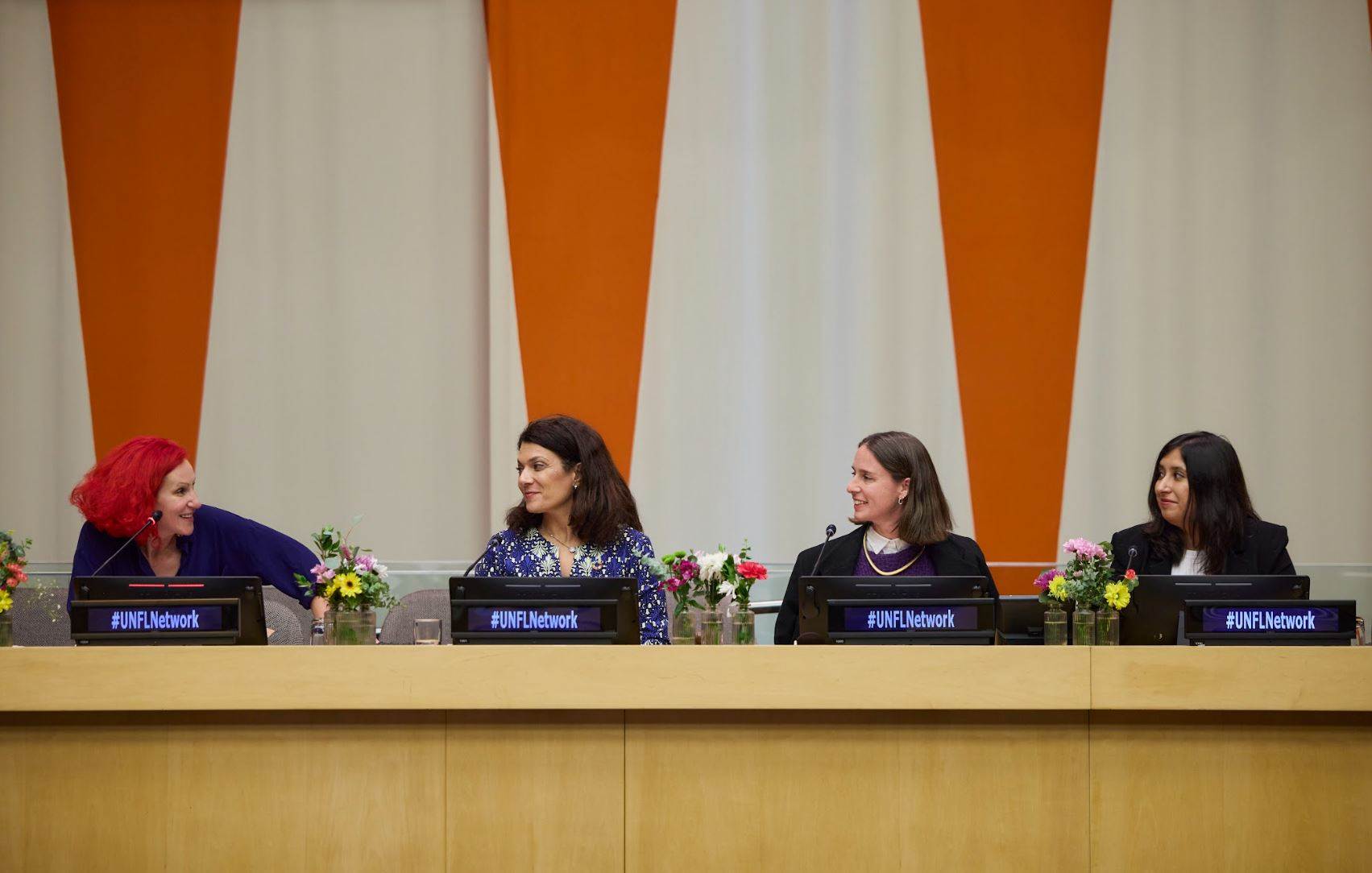Unspun, Refiberd and Avalo take UN stage

How technology can be used to “redefine the fashion landscape” was the key theme of a panel hosted by circularity and denim expert Adriana Galijasevic during the United Nations Fashion and Lifestyle Network Annual Meeting in New York.
She was joined by Tricia Carey, chief commercial officer at Avalo AI; Beth Esponette, co-founder at Unspun; and Sarika Bajaj, co-founder at Refiberd, to talk about Innovation by Design, and how companies can use AI, software and technology to make jumps in efficiency, reduce waste and reach Sustainable Development Goals.
Avalo harnesses machine learning to commercialise what is described as ‘impactful crop traits’ faster and more affordably compared with conventional breeding or gene editing. “It’s a new way of using data to develop plants that are really needed,” explained Ms Carey. “Climate change is real, it’s here and it’s now, so we have to work with farmers so they can be more efficient, generating higher yields with lower inputs.”
Unspun launched 10 years ago on a mission to revolutionise garment making by making to order, and last year worked with Walmart on a technology that weaves straight to garment, instead of a flat fabric. The company now has six machines in California, with more ordered for Europe and the US. Ms Esponette said that the initial vision was to cut waste and boost efficiency. “We can create a system that produces zero waste, saving on material, and zero inventory but, ultimately, we found an easier sell in the industry was realising a cost saving on a per-garment level. Because we’re weaving to shape, we are removing steps and thereby reducing costs, so that’s been our reframe.”
Refiberd has developed a technology to detect fibre composition and the presence of contaminants in textile waste using a hyperspectral imaging system and artificial intelligence. “Our goal is to work with the recyclers and sorters, but also to work throughout the supply chain, for instance, validating products," explained Ms Bajaj. She said the Digital Product Passport offers the chance for companies in the same space to integrate technologies to make crucial partnerships – for instance, working fibre tracers to track compositions. “We’re only at the start of what data could mean in the fashion space,” she added.
Image (l-r): Adriana Galijasevic, Tricia Carey, Beth Esponette and Sarika Bajaj. Credit: David Nicholas











